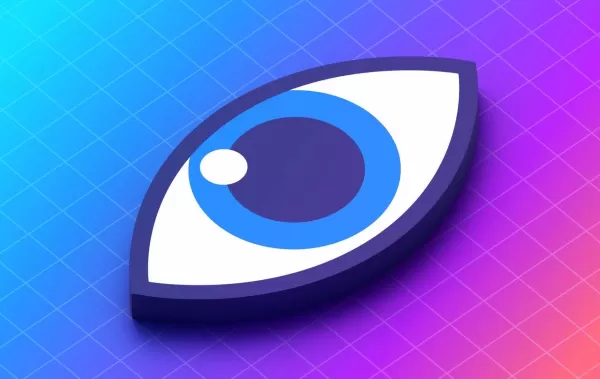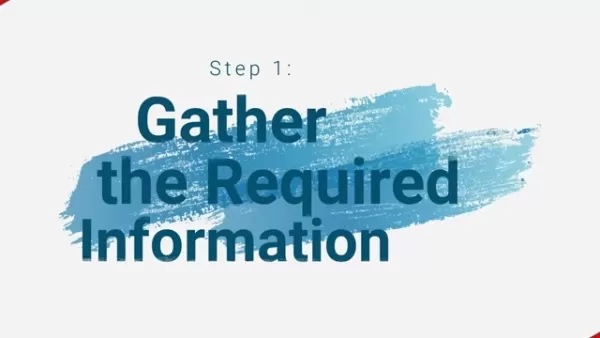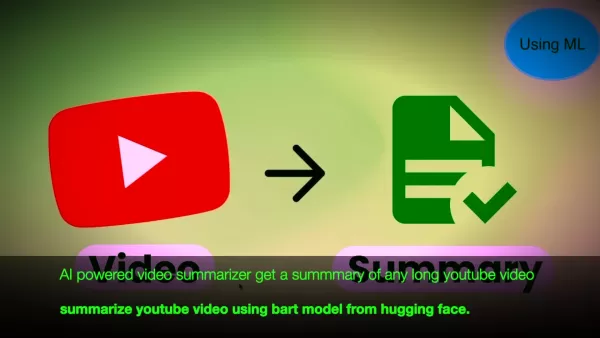Networks of collaborative AI agents will transform how we work, says this expert

The Future of AI Agents and Collaborative Networks
In the world of AI, there's a lot of buzz around AI agents and agentic AI. OpenAI's CEO, Sam Altman, has been vocal about this, especially when they launched an online store for custom GPTs last year. He's talked at length about how these agents will soon handle much more complex tasks than the current copilots we're familiar with.
According to Dharmesh Shah, co-founder and CTO of Hubspot, the next big thing might be networks of AI agents that work together to tackle even more intricate tasks, mostly without human intervention. In a recent Zoom interview with ZDNET, Shah shared his vision: "I think over time, we're gonna see these agents collaborate with each other, right?"
Shah sees agents as a step up from copilots, capable of managing higher-order goals that involve multiple steps. "Agents are effectively a progression up from copilots," he explained. "And I think both will have their place in the business landscape. What makes agents interesting is that they can take on, kind-of, higher-order goals that usually involve multiple steps."
Hubspot's Push into AI Agents and Networks
Hubspot is in the race with companies like Salesforce to introduce AI agents that assist with various customer relationship management (CRM) tasks, including sales, marketing, and more. To facilitate this, Hubspot is pushing the concept of a network that serves as a marketplace for these agents. At their annual Inbound conference, alongside their AI suite called Breeze, they unveiled a network for agents named agent.ai.
Hubspot announced that agent.ai already boasts over 47,000 users and more than 1,700 builders eager to create their own agents. Shah, deeply involved in this project, described it as "a professional network for agents, which I am personally involved in. Think of it as the number one professional network for agents, unlike LinkedIn, which is for humans."
Shah envisions teams of agents, including "mini agents" and a supervising agent, working together. "Over time, as these agents develop, they're going to be able to, kind-of, use each other," he said. For example, one agent might specialize in researching a company by analyzing public transcripts like earnings calls, while another could focus on analyzing web traffic from the company's website, pulling all this data together for a comprehensive view.
These agents can be thought of as "digital teammates," and the agents.ai network acts as a marketplace where users can find agents suited for specific tasks, assess their experience, and determine their fit based on user feedback.
Overcoming Past Challenges with Natural Language
Shah pointed out that past attempts to create collaborating "objects," like the CORBA standard in the 1990s, struggled with interoperability issues. However, he believes that the natural language capabilities of generative AI can serve as the connective tissue for programming and assembling these agents.
"We can interact with AI through natural language, right? Well, that also carries over to agents," Shah noted. "The API, so to speak, of an agent is actually natural language. You don't have to learn this other language to be able to make use of these agents, whether you're doing it as a human or you're doing it as another agent. That unlocks a new level of interoperability that I think has historically been hard to accomplish."
The Impact on CRM and Beyond
Shah sees the rise of agentic AI and collaborative agent networks as a game-changer for CRM software. Reflecting on the transformative impact of cloud computing around 2006-2007, he said, "We saw lots of innovation back in the cloud days... which was the last big kind of 'transformative impacts every industry kind of thing' -- you know, cloud CRMs emerged, and have taken over now pretty much every kinda major CRM."
Now, he believes we're on the cusp of another paradigm shift, driven by AI. "We're going to have now a new kind of paradigm, which is going to be an AI-based smart CRM," Shah predicted. This shift will intensify the competition among CRM platforms like Hubspot and Salesforce, focusing on which platform can best leverage agents for both users and developers.
Shah is excited about this transition because it opens up opportunities for a new generation of developers. "One of the reasons I'm personally very excited about this, kind-of, AI transition, is that now we're going to see a whole new generation of developers that are going to be seeking a platform on which to build their ideas, saying, 'Hey, I want to build something for marketing or sales,'" he said.
The question then becomes which CRM platform these developers will choose. Shah sees this as an opportunity for Hubspot to capture mindshare within the developer ecosystem. "Which CRM platform will they choose? And, now, I think we have an opportunity to build this kind of new mindshare within the developer ecosystem to say, 'Hey, now it's not about Web-based applications; agents are the new apps,' right? That's the new thing that people will be building. So, that's exciting."
Related article
 AI-Powered Cover Letters: Expert Guide for Journal Submissions
In today's competitive academic publishing environment, crafting an effective cover letter can make the crucial difference in your manuscript's acceptance. Discover how AI-powered tools like ChatGPT can streamline this essential task, helping you cre
AI-Powered Cover Letters: Expert Guide for Journal Submissions
In today's competitive academic publishing environment, crafting an effective cover letter can make the crucial difference in your manuscript's acceptance. Discover how AI-powered tools like ChatGPT can streamline this essential task, helping you cre
 US to Sanction Foreign Officials Over Social Media Regulations
US Takes Stand Against Global Digital Content Regulations
The State Department issued a sharp diplomatic rebuke this week targeting European digital governance policies, signaling escalating tensions over control of online platforms. Secretary Marco
US to Sanction Foreign Officials Over Social Media Regulations
US Takes Stand Against Global Digital Content Regulations
The State Department issued a sharp diplomatic rebuke this week targeting European digital governance policies, signaling escalating tensions over control of online platforms. Secretary Marco
 Ultimate Guide to AI-Powered YouTube Video Summarizers
In our information-rich digital landscape, AI-powered YouTube video summarizers have become indispensable for efficient content consumption. This in-depth guide explores how to build a sophisticated summarization tool using cutting-edge NLP technolog
Comments (3)
0/200
Ultimate Guide to AI-Powered YouTube Video Summarizers
In our information-rich digital landscape, AI-powered YouTube video summarizers have become indispensable for efficient content consumption. This in-depth guide explores how to build a sophisticated summarization tool using cutting-edge NLP technolog
Comments (3)
0/200
![MichaelThomas]() MichaelThomas
MichaelThomas
 August 16, 2025 at 9:01:00 AM EDT
August 16, 2025 at 9:01:00 AM EDT
This article got me thinking—collaborative AI agents sound like a game-changer for teamwork! Imagine AI seamlessly handling project coordination while we focus on creative stuff. 😎 But I wonder, will it make us lazy or super productive?


 0
0
![NicholasGonzález]() NicholasGonzález
NicholasGonzález
 July 30, 2025 at 9:41:19 PM EDT
July 30, 2025 at 9:41:19 PM EDT
This article on AI agent networks is mind-blowing! The idea of collaborative AI transforming work sounds like sci-fi coming to life. Can't wait to see how this changes industries, but I wonder if it'll make some jobs obsolete. 🤔


 0
0
![GregorySmith]() GregorySmith
GregorySmith
 July 27, 2025 at 9:20:03 PM EDT
July 27, 2025 at 9:20:03 PM EDT
Super cool to see how AI agents might team up to change work! 🤖 Makes me wonder if my job will soon have an AI coworker outsmarting me. 😅


 0
0

The Future of AI Agents and Collaborative Networks
In the world of AI, there's a lot of buzz around AI agents and agentic AI. OpenAI's CEO, Sam Altman, has been vocal about this, especially when they launched an online store for custom GPTs last year. He's talked at length about how these agents will soon handle much more complex tasks than the current copilots we're familiar with.
According to Dharmesh Shah, co-founder and CTO of Hubspot, the next big thing might be networks of AI agents that work together to tackle even more intricate tasks, mostly without human intervention. In a recent Zoom interview with ZDNET, Shah shared his vision: "I think over time, we're gonna see these agents collaborate with each other, right?"
Shah sees agents as a step up from copilots, capable of managing higher-order goals that involve multiple steps. "Agents are effectively a progression up from copilots," he explained. "And I think both will have their place in the business landscape. What makes agents interesting is that they can take on, kind-of, higher-order goals that usually involve multiple steps."
Hubspot's Push into AI Agents and Networks
Hubspot is in the race with companies like Salesforce to introduce AI agents that assist with various customer relationship management (CRM) tasks, including sales, marketing, and more. To facilitate this, Hubspot is pushing the concept of a network that serves as a marketplace for these agents. At their annual Inbound conference, alongside their AI suite called Breeze, they unveiled a network for agents named agent.ai.
Hubspot announced that agent.ai already boasts over 47,000 users and more than 1,700 builders eager to create their own agents. Shah, deeply involved in this project, described it as "a professional network for agents, which I am personally involved in. Think of it as the number one professional network for agents, unlike LinkedIn, which is for humans."
Shah envisions teams of agents, including "mini agents" and a supervising agent, working together. "Over time, as these agents develop, they're going to be able to, kind-of, use each other," he said. For example, one agent might specialize in researching a company by analyzing public transcripts like earnings calls, while another could focus on analyzing web traffic from the company's website, pulling all this data together for a comprehensive view.
These agents can be thought of as "digital teammates," and the agents.ai network acts as a marketplace where users can find agents suited for specific tasks, assess their experience, and determine their fit based on user feedback.
Overcoming Past Challenges with Natural Language
Shah pointed out that past attempts to create collaborating "objects," like the CORBA standard in the 1990s, struggled with interoperability issues. However, he believes that the natural language capabilities of generative AI can serve as the connective tissue for programming and assembling these agents.
"We can interact with AI through natural language, right? Well, that also carries over to agents," Shah noted. "The API, so to speak, of an agent is actually natural language. You don't have to learn this other language to be able to make use of these agents, whether you're doing it as a human or you're doing it as another agent. That unlocks a new level of interoperability that I think has historically been hard to accomplish."
The Impact on CRM and Beyond
Shah sees the rise of agentic AI and collaborative agent networks as a game-changer for CRM software. Reflecting on the transformative impact of cloud computing around 2006-2007, he said, "We saw lots of innovation back in the cloud days... which was the last big kind of 'transformative impacts every industry kind of thing' -- you know, cloud CRMs emerged, and have taken over now pretty much every kinda major CRM."
Now, he believes we're on the cusp of another paradigm shift, driven by AI. "We're going to have now a new kind of paradigm, which is going to be an AI-based smart CRM," Shah predicted. This shift will intensify the competition among CRM platforms like Hubspot and Salesforce, focusing on which platform can best leverage agents for both users and developers.
Shah is excited about this transition because it opens up opportunities for a new generation of developers. "One of the reasons I'm personally very excited about this, kind-of, AI transition, is that now we're going to see a whole new generation of developers that are going to be seeking a platform on which to build their ideas, saying, 'Hey, I want to build something for marketing or sales,'" he said.
The question then becomes which CRM platform these developers will choose. Shah sees this as an opportunity for Hubspot to capture mindshare within the developer ecosystem. "Which CRM platform will they choose? And, now, I think we have an opportunity to build this kind of new mindshare within the developer ecosystem to say, 'Hey, now it's not about Web-based applications; agents are the new apps,' right? That's the new thing that people will be building. So, that's exciting."
 AI-Powered Cover Letters: Expert Guide for Journal Submissions
In today's competitive academic publishing environment, crafting an effective cover letter can make the crucial difference in your manuscript's acceptance. Discover how AI-powered tools like ChatGPT can streamline this essential task, helping you cre
AI-Powered Cover Letters: Expert Guide for Journal Submissions
In today's competitive academic publishing environment, crafting an effective cover letter can make the crucial difference in your manuscript's acceptance. Discover how AI-powered tools like ChatGPT can streamline this essential task, helping you cre
 US to Sanction Foreign Officials Over Social Media Regulations
US Takes Stand Against Global Digital Content Regulations
The State Department issued a sharp diplomatic rebuke this week targeting European digital governance policies, signaling escalating tensions over control of online platforms. Secretary Marco
US to Sanction Foreign Officials Over Social Media Regulations
US Takes Stand Against Global Digital Content Regulations
The State Department issued a sharp diplomatic rebuke this week targeting European digital governance policies, signaling escalating tensions over control of online platforms. Secretary Marco
 Ultimate Guide to AI-Powered YouTube Video Summarizers
In our information-rich digital landscape, AI-powered YouTube video summarizers have become indispensable for efficient content consumption. This in-depth guide explores how to build a sophisticated summarization tool using cutting-edge NLP technolog
Ultimate Guide to AI-Powered YouTube Video Summarizers
In our information-rich digital landscape, AI-powered YouTube video summarizers have become indispensable for efficient content consumption. This in-depth guide explores how to build a sophisticated summarization tool using cutting-edge NLP technolog
 August 16, 2025 at 9:01:00 AM EDT
August 16, 2025 at 9:01:00 AM EDT
This article got me thinking—collaborative AI agents sound like a game-changer for teamwork! Imagine AI seamlessly handling project coordination while we focus on creative stuff. 😎 But I wonder, will it make us lazy or super productive?


 0
0
 July 30, 2025 at 9:41:19 PM EDT
July 30, 2025 at 9:41:19 PM EDT
This article on AI agent networks is mind-blowing! The idea of collaborative AI transforming work sounds like sci-fi coming to life. Can't wait to see how this changes industries, but I wonder if it'll make some jobs obsolete. 🤔


 0
0
 July 27, 2025 at 9:20:03 PM EDT
July 27, 2025 at 9:20:03 PM EDT
Super cool to see how AI agents might team up to change work! 🤖 Makes me wonder if my job will soon have an AI coworker outsmarting me. 😅


 0
0





























